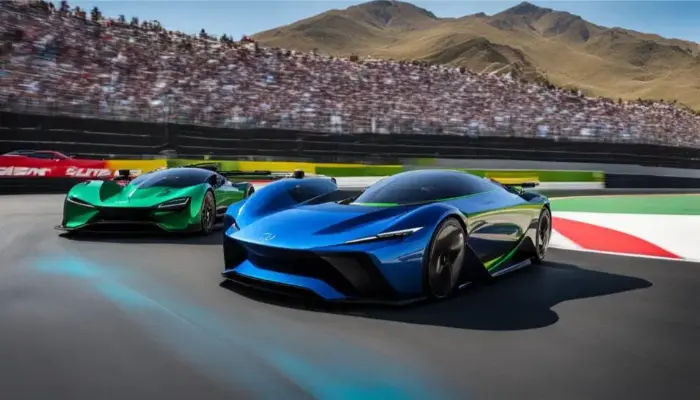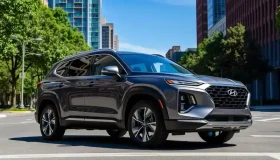As you navigate the bustling electric vehicle market, you’re confronted with a critical choice that could redefine your driving experience – choosing between electric and hybrid vehicles. Both eco-friendly vehicles beckon with the allure of cutting-edge electric car technology and hybrid engine efficiency, promising a cleaner, more efficient future on the road. But as the debate of electric vs. gasoline cars rages on, it’s essential to discern whether the EV sustainability or the hybrid car advantages align better with your lifestyle.
Understanding the nuances between these two types of vehicles is key. The rise of electric vehicles heralds a future of zero tailpipe emissions, tapping into the power of electric vehicle market innovations. Conversely, hybrid vehicles offer a pragmatic blend of traditional and electric power, championing hybrid vehicle options without fully forgoing the gas pump. Your decision will pivot on factors like electric vehicle emissions, driving habits, and overall cost of ownership.
Key Takeaways
- Grasp the environmental and technological contrasts between electric and hybrid vehicles.
- Compare EV sustainability against hybrid car advantages to gauge the best fit for your routine.
- Delve into electric car technology advancements shaping the future of transportation.
- Assess the efficiency of hybrid engine systems in reducing emissions and fuel consumption.
- Analyze the growth of the electric vehicle market and the variety of hybrid vehicle options available.
- Consider the long-term implications of electric vehicle emissions on your ecological footprint.
Understanding Electric Cars: Advancements and Limitations
As we witness an automotive revolution, electric vehicles (EVs) are at the forefront of ushering in a new era of transportation—one marked by technological innovation and a commitment to sustainability. Manufacturers such as Tesla, Audi, and Ford are leading this charge, offering consumers the opportunity to participate in the greening of mobility. However, embracing EVs comes with both perks and challenges which are crucial for potential owners to understand.
EV Benefits: Sustainability and Reduced Emissions
One of the most compelling EV benefits is their contribution to environmental conservation. Driving an electric car means you’re actively reducing your carbon footprint thanks to electric vehicle emissions being significantly lower than their gasoline counterparts. In light of global climate concerns, the push towards EVs is a stride towards a cleaner, greener living.
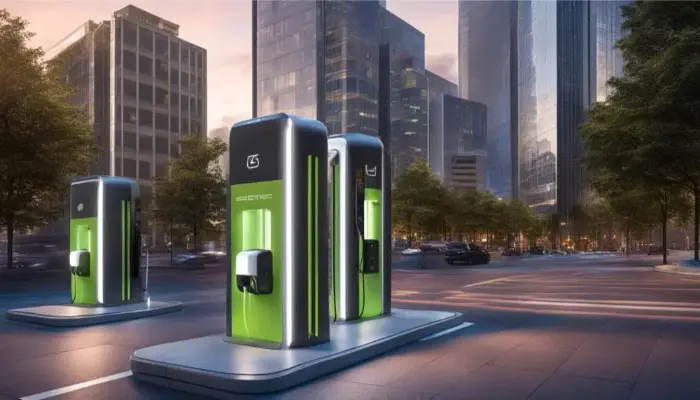
Moreover, the ever-expanding network of EV charging stations is making it increasingly convenient to own an EV. Coupled with advancements in EV battery life, the latest models are offering longer ranges and more dependable performance than ever before.
The Cost of Electric Vehicle Ownership and Incentives
Financially, EVs are becoming more accessible. Electric vehicle tax credits and incentives are available in various states, appealing to consumers by offsetting the upfront costs. These financial measures, alongside savings on fuel and maintenance, contribute to a cost-effective ownership experience over time. Understanding the full spectrum of incentives available to you is key to making an informed purchase.
Challenges: Battery Life and Charging Infrastructure
One must also consider the obstacles in the path of electric vehicle adoption. Despite the trend toward improved battery technology, concerns about EV battery life and replacement costs linger. Additionally, there is the necessity for robust EV infrastructure development to accommodate the growing number of electric vehicles on the road.
Charging an electric car also presents a shift in consumer behavior. Unlike traditional refueling, charging requires planning and patience, as EV charging stations aren’t as ubiquitous as gas stations—yet. Nevertheless, the landscape is changing rapidly, with public and private sectors investing heavily in a network that supports charging an electric car with greater ease and speed.
As we delve deeper into the realm of EVs, staying informed on the latest electric vehicle trends will equip you with the knowledge to navigate the burgeoning electric landscape effectively, ensuring a seamless transition to a more sustainable driving future.
Deciphering Hybrid Technology: How Hybrids Balance Power and Efficiency
As the automotive industry continues to innovate, the symbiosis of a gasoline engine with electric motors has paved the way for a variety of hybrid car models. This hybrid technology suggests a significant step forward in vehicular efficiency and performance.
Hybrid Car Features: Combining Electric Motors with Gas Engines
Leading the charge in hybrid vehicle efficiency, cars like the Toyota Prius have integrated advanced features that optimize the delivery of power while conserving fuel. The seamless transition between combustion engine and electric motor not only improves hybrid fuel economy but also enhances the overall hybrid driving experience. Features such as regenerative braking and electric-only drive modes encapsulate the ingenuity behind these vehicles.
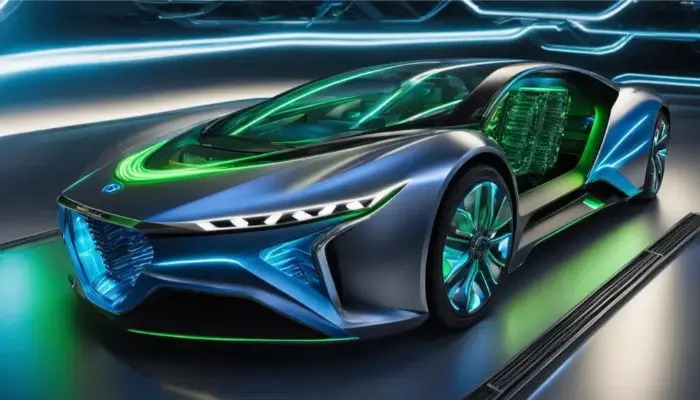
Fueling Efficiency: Hybrid Car Performance and Economy
Through adept engineering, hybrids successfully diminish fuel consumption while maintaining robust performance. This delicate balance is a testimony to hybrid car features that guarantee an experience not compromised by the pursuit of hybrid fuel economy. With a selection of hybrids varying in size and power, drivers can relish a personalized driving experience tailored to their needs without sacrificing hybrid vehicle efficiency.
| Hybrid Model | Fuel Economy (MPG) | Engine/ Motor Power Output | Battery Capacity |
|---|---|---|---|
| Toyota Prius | 54 City / 50 Highway | 121 hp | 1.31 kWh |
| Honda Clarity | 44 City / 40 Highway | 212 hp | 17 kWh |
| Hyundai Ioniq | 58 City / 60 Highway | 139 hp | 1.56 kWh |
The conversation over hybrid technology is diverse, yet central to it is a universal appeal for a progressive, ecologically conscious drive. By dissecting how hybrids balance power and efficiency, it becomes evident why these innovative machines resonate so deeply with the modern driver. Explore your local listings, and you might just find the perfect hybrid that speaks to both your heart and your sensibilities.
The Financial Implications: Electric Cars vs. Hybrids
When navigating the landscape of eco-friendly transportation, the cost aspects of electric vs. hybrid vehicles must be scrutinized. The battle between electric vehicle (EV) ownership costs and hybrid vehicle comparisons can be complex, involving both short-term and long-term financial planning. To help you make an informed decision, let’s delve into the intricacies of upfront and enduring expenses, as well as incentives making these vehicles more accessible.
Comparing Upfront Costs and Long-term Savings
Initially, EVs tend to have a steeper price point than their hybrid counterparts. However, this is offset by lower operating costs over time. Without the need for gasoline and with reduced maintenance needs, electric cars can lead to significant savings. Hybrids, while more expensive than conventional cars, can save you money at the pump, offering a midway solution.
Additionally, considering the EV environmental impact, which is considerably less than traditional vehicles, EVs may present a more cost-effective choice in the long run. The high upfront cost may seem daunting, but the investment often pays off through long-term energy savings and a smaller carbon footprint.
Tax Credits and Incentives for Eco-Friendly Vehicle Purchases
The U.S. government has long provided a series of electric vehicle incentives and hybrid car tax incentives to encourage consumers to purchase eco-friendly vehicles. These economic boosts serve to reduce the initial burden of buying a vehicle designed for sustainability.
| Vehicle Type | Federal Tax Credit | Additional State Incentives | Overall Impact on Upfront Cost |
|---|---|---|---|
| Electric Vehicle (EV) | Up to $7,500 | Varies by state | Significantly reduced initial price |
| Plug-In Hybrid (PHEV) | Up to $7,500 | Varies by state | Moderately reduced initial price |
| Hybrid Vehicle | Varies | Varies by state | Somewhat reduced initial price |
Noteworthy is that these credits are subject to phasing out once a manufacturer reaches a set number of sold units, emphasizing the importance of timely purchases. Staying informed about electric vehicle incentives and hybrid car tax incentives will empower you to optimize your vehicle’s financial impact.
While assessing electric vs. hybrid cost, it’s important to look beyond the sticker price. Factor in long-term savings, environmental benefits, and available incentives to gauge which option aligns with both your financial and ethical compass.
Electric Vehicle Innovations vs. Hybrid Vehicle Options
The landscape of eco-friendly transportation is rapidly evolving with both electric vehicle innovations and diverse hybrid vehicle options. Manufacturers are increasingly placing a spotlight on electric car models—from sleek battery electric vehicles to versatile plug-in hybrids. Similarly, hybrid technology continues to advance, presenting a range of hybrid system types designed to meet various driving preferences and needs.
Electric Car Models: From Battery EVs to Plug-In Hybrids
As you explore the realms of the electric car market, you’ll encounter an impressive array of models that cater to every lifestyle. Battery electric vehicles (BEVs) allow for a completely gas-free existence, truly embodying the promise of clean transportation. On the other hand, plug-in hybrids offer the flexibility of extended range through their combined electric and gasoline powertrains. This hybridization allows for significant reductions in emissions and a boost in fuel economy, endorsing a more sustainable approach to road travel.
Hybrid Variants: Understanding Different Hybrid System Types
Differentiating between the various types of hybrid systems is crucial to making an informed decision suited to your driving habits. Hybrids come in several forms, each with its distinct characteristics. A full hybrid can drive solely on electric power at low speeds, while a mild hybrid uses the electric engine to assist the gasoline engine in reducing overall fuel consumption. Plug-in hybrids provide an admirable compromise with their ability to cover significant distances on pure electric power before switching to hybrid mode.
| Vehicle Type | Power Source | Range | Primary Benefit |
|---|---|---|---|
| Battery Electric Vehicles (BEVs) | Electric (Battery) | Varies by model, typically 200-300+ miles | Zero tailpipe emissions, lower running costs |
| Plug-In Hybrids (PHEVs) | Electric (Battery) + Gasoline | Electric range: typically 25-50 miles Total range: 300-600+ miles | Flexibility of fuel source, reduced emissions |
| Full Hybrids | Electric (Battery) + Gasoline | Reduced reliance on electric range | Fuel efficiency with seamless transition between power sources |
| Mild Hybrids | Electric (Assist) + Gasoline | N/A (Does not drive on electric power alone) | Improved fuel economy, lower cost compared to full hybrids |
This variety of electric car models and hybrid vehicle options is complemented by continuous strides in electric vehicle innovations, ensuring that whatever your individual requirements may be, there’s a sustainable and efficient vehicle available for you.
The Driving Experience: EV vs. Hybrid Noise and Acceleration
When you slip into the driver’s seat of an electric vehicle (EV), the immediate difference you’ll notice is the hush of silence. An EV’s lack of engine noise starkly contrasts with the familiar hum of a hybrid’s gasoline engine. This absence of traditional combustion engine rumbles contributes to a more serene driving environment, an aspect often referred to as EV vs. hybrid noise. What’s more, the distinctive electric car design focuses on aerodynamics not just for aesthetic appeal but to minimize noise even further at higher speeds.
Another facet of the EV experience is the rush of electric car acceleration. Unlike hybrids, electric vehicles benefit from immediate torque delivery, enabling surprisingly quick take-offs and spirited driving when the pedal is pressed. This makes electric cars not just quiet, but also unexpectedly quick. In the realm of hybrid car performance, the experience is nuanced. While hybrids combine electric power with gasoline engines for efficiency, their acceleration tends to be more measured, prioritizing a balance between power and fuel economy.
The range of an EV is an often-discussed topic. EV driving range has seen significant improvements in recent years, easing the anxiety associated with longer trips. In contrast, the hybrid driving experience offers peace of mind through a combination of battery power and the assurance of gasoline, making range considerations virtually nonexistent. However, driving an EV means relishing the near-silent ride and exuberant acceleration within the limits of its range—an experience that’s increasingly becoming more convenient with the advent of advanced EV technologies and expanding charging networks.
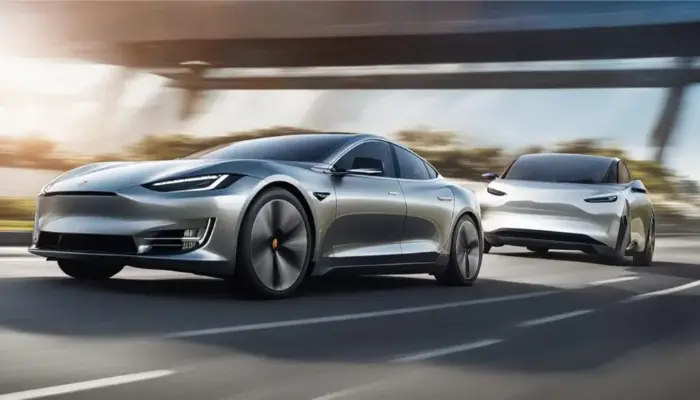
Both EVs and hybrids have their place in the current automotive landscape, offering consumers more choice than ever before. Whether it’s the whisper-quiet, swift acceleration of EVs or the efficient, familiar performance of hybrids, these vehicles provide unique experiences that cater to different preferences, lifestyle needs, and environmental considerations.
Maintenance and Reliability: Analyzing EV and Hybrid Longevity
The commitment to owning an electric or hybrid vehicle extends beyond the initial purchase. Understanding the nuances of EV maintenance and hybrid car maintenance is crucial for ensuring that the convenience and reliability of your vehicle endure throughout its lifecycle. Let’s delve into the aspects that shape the EV ownership experience and what makes hybrid vehicles stand out in terms of upkeep and durability.
EV Maintenance: Easing the Ownership Experience
If you’ve chosen the electric pathway, you’ll be pleased to know that EV maintenance is generally less demanding than that of conventional vehicles. Electric vehicles are celebrated for their minimal moving parts, which statistically leads to fewer mechanical issues and less frequent service visits. However, it’s essential to consider battery health over time, as this can influence vehicle range and performance. A key component to keep an eye on is the onboard hybrid car batteries, which may require ultimate replacement post-warranty period.
Hybrid Car Maintenance: What You Need to Know
Owners of hybrid vehicles will encounter a maintenance schedule that aligns more closely with traditional cars. Regular oil changes, fluid level checks, and occasional battery assessments are part of the routine to preserve hybrid vehicle reliability. The evolution of hybrid car batteries and other systems has progressed such that today’s hybrids are the embodiment of longevity, requiring lower frequencies of substantial repairs compared to earlier models.
Whether you drive an EV or a hybrid, understanding the unique maintenance needs of your vehicle will not only enhance its operational efficacy but also contribute positively to your overall ownership experience. Embrace the future of transportation with confidence, knowing that both paths offer their respective advantages in the realm of maintenance and dependability.
Conclusion
As we steer into the future, the trajectory of automotive technology is clear—clean energy vehicles are not just a fleeting trend but the foundation of tomorrow’s transportation. The automotive industry is transitioning to a realm where electric vehicle emissions—or the absence thereof—shape the environmental narrative, underscoring the benefits of EV sustainability. Hybrid vehicles have valiantly served as a stepping stone, providing hybrid car advantages and easing consumers into the concept of electrified transport. Yet, with each technological advance, the electric vehicle market takes a definitive leap forward, edging closer to a point where gas-powered vehicles become artifacts of the past.
The Future is Electric: Transitioning to Clean Energy Vehicles
Amidst this transformative phase, electric vehicles emerge as frontrunners in the race to reduce transportation’s carbon footprint. By embracing electric vehicles, you become part of the driving force propelling society towards EV environmental impact mitigation. With expanded infrastructure and burgeoning support for clean energy vehicles, the adoption of electric transportation is not just feasible but increasingly convenient and economical.
Driving Towards Sustainability: Making an Informed Decision
The choices you make today resonate well into the future. Selecting between an electric or hybrid car is more than a comparison of specs; it’s a decision that echoes your commitment to sustainability. As you weigh hybrid car advantages against the eco-friendliness of electric counterparts, consider the long-term implications of electric vehicle emissions and the potential to contribute to a greener planet. Making an informed decision aligns your personal values with global environmental goals, ensuring that your choice is one that you can be proud of—one that truly drives change. Remember, the road to a sustainable future is paved by the decisions of informed consumers like you.
FAQ
What are the main differences between electric and hybrid vehicles?
Electric vehicles solely rely on electric power stored in batteries and have zero tailpipe emissions, while hybrid vehicles combine an internal combustion engine with an electric motor to improve fuel economy and reduce emissions compared to conventional gasoline cars. The choice between the two depends on factors such as driving needs, environmental priorities, and access to charging stations.
What are the key benefits of electric vehicle technology?
Electric vehicle technology offers benefits such as sustainability through reduced emissions, potential long-term cost savings on fuel and maintenance, incentives and tax credits from governments, and a quiet driving experience with quick acceleration due to the immediate torque of electric motors.
What challenges do electric car owners face?
Challenges for electric car owners include the upfront cost of purchasing, the current range and availability of charging infrastructure for long-distance travel, longer recharging times compared to refueling a gasoline car, and concerns about battery life and replacement costs.
How do hybrid cars perform compared to traditional vehicles?
Hybrid cars offer a balance of power and efficiency by combining gasoline engines with electric motors. They provide better fuel economy than traditional vehicles, lower emissions, regenerative braking to recharge the battery, and reliable performance.
How do the costs of owning an electric car compare to a hybrid vehicle?
Electric cars often have higher upfront costs than hybrid vehicles, but can lead to greater savings over time due to lower operational costs, such as reduced spending on fuel and maintenance. Both types of vehicles may benefit from tax credits and incentives that can offset initial expenses.
Are there different types of hybrid vehicles?
Yes, there are different types of hybrid vehicles, including full hybrids, mild hybrids, and plug-in hybrids. Full hybrids can run on just the electric motor, the gasoline engine, or a combination of both, while mild hybrids use the electric motor to assist the gasoline engine and cannot run solely on electricity. Plug-in hybrids can be recharged by plugging into an external source and typically have a larger battery, offering a longer electric-only driving range.
How does driving an electric car differ from driving a hybrid vehicle?
Driving an electric car is characterized by silent operation, instant acceleration due to instantaneous electric torque, and no dependence on a gasoline engine. In contrast, hybrids may integrate the use of the gasoline engine during acceleration and high-speed driving, creating a blend of traditional driving sensations and noise, along with the benefits of electric motor assistance.
What maintenance is required for electric and hybrid vehicles?
Electric vehicles generally require less maintenance since they lack many of the mechanical parts found in internal combustion engines, such as oil and transmission fluid changes. However, battery health is a major factor to consider. Hybrid vehicles will require more traditional maintenance like oil changes, but still benefit from the longevity of electric motor usage.
What incentives are available for electric and hybrid vehicle owners?
Incentives for electric and hybrid vehicle owners can include federal and state tax credits, rebates, grants for purchasing eco-friendly vehicles, reduced registration fees, and access to carpool lanes. The availability and amount of these incentives vary by location and are subject to change based on policy updates.
Can electric vehicles match the performance of traditional gasoline cars?
Electric vehicles can not only match but often exceed the performance of traditional gasoline cars in terms of acceleration due to the immediate torque delivery of electric motors. Many electric models offer competitive driving ranges and fast charging capabilities, making them increasingly viable alternatives to gasoline-powered vehicles.


